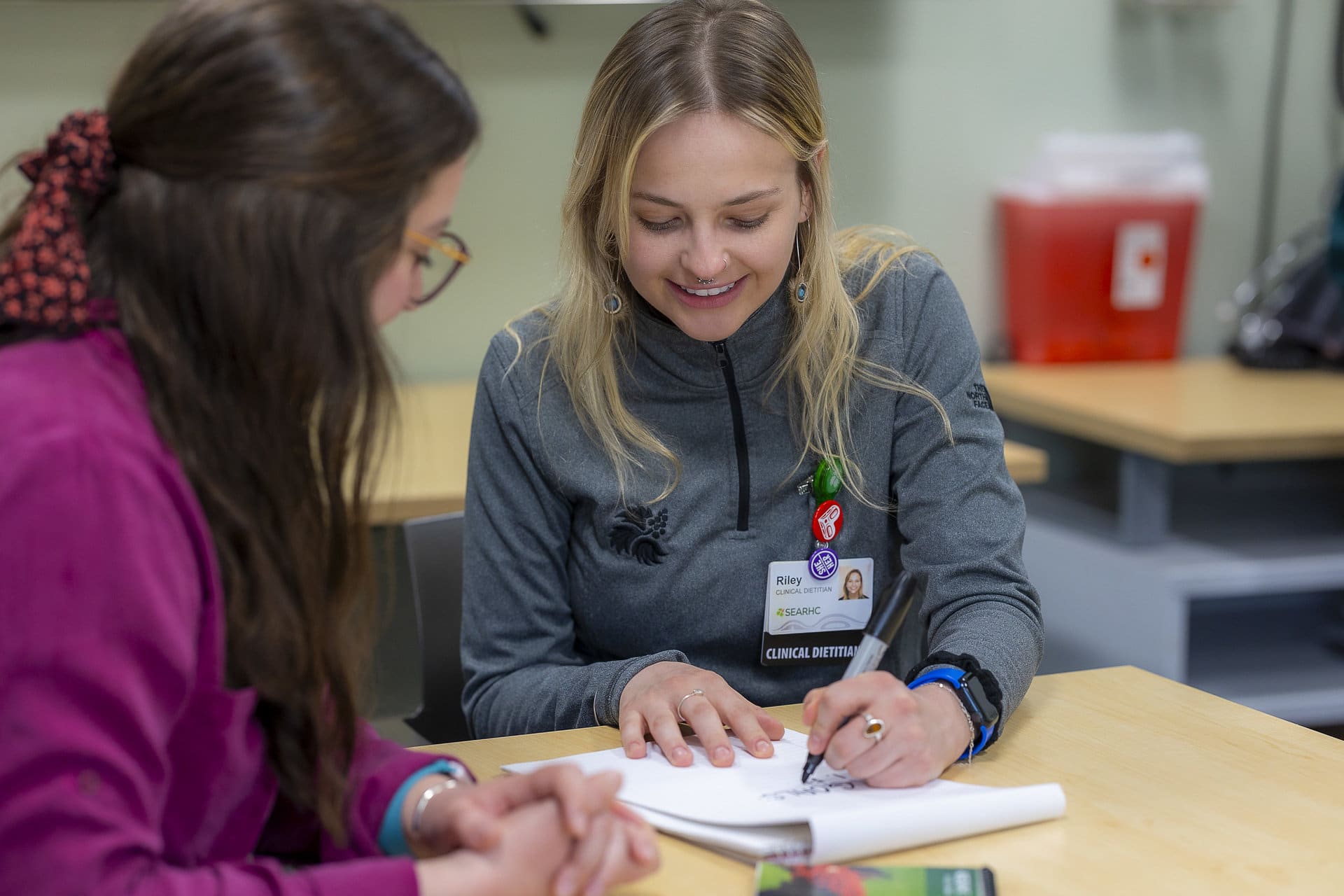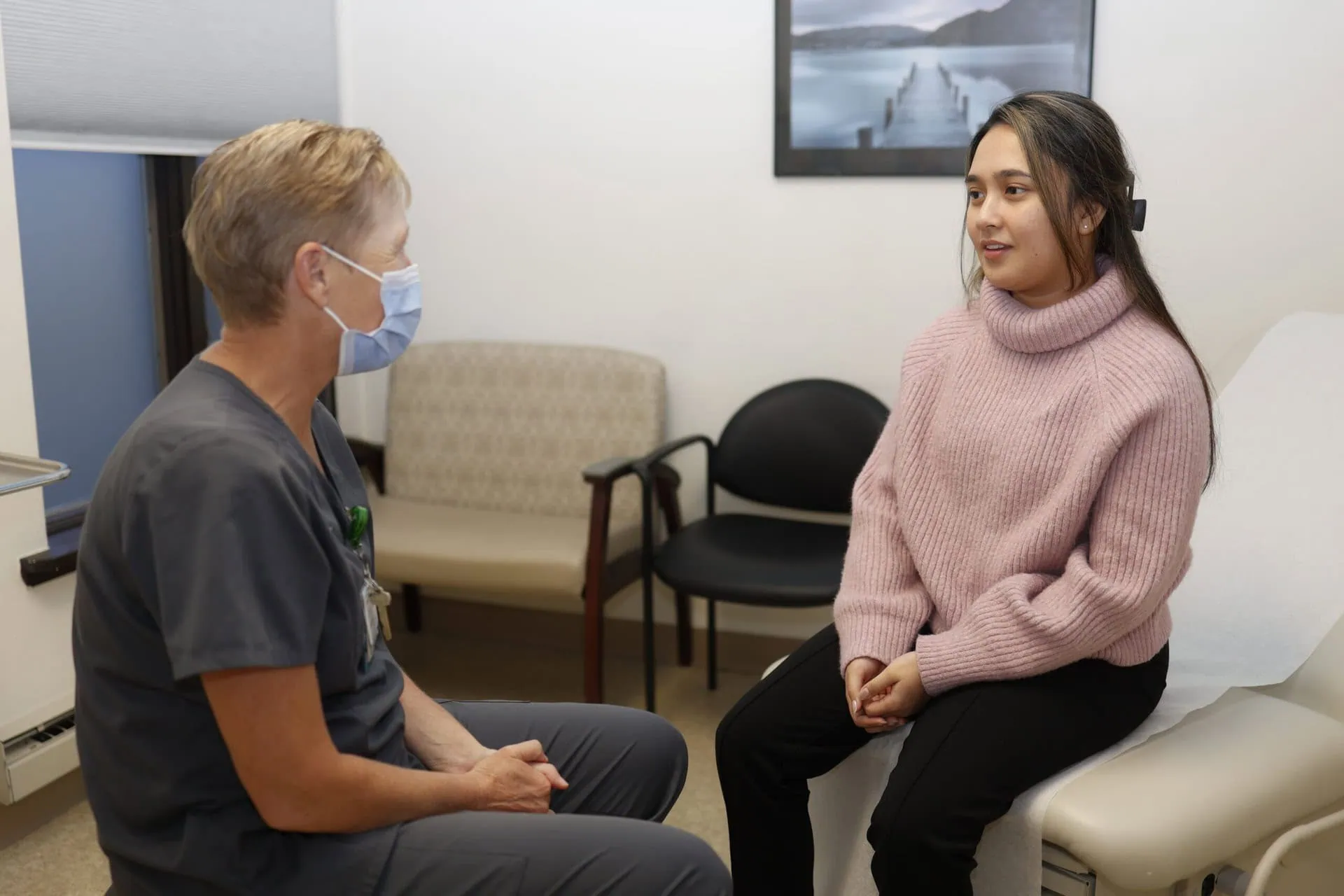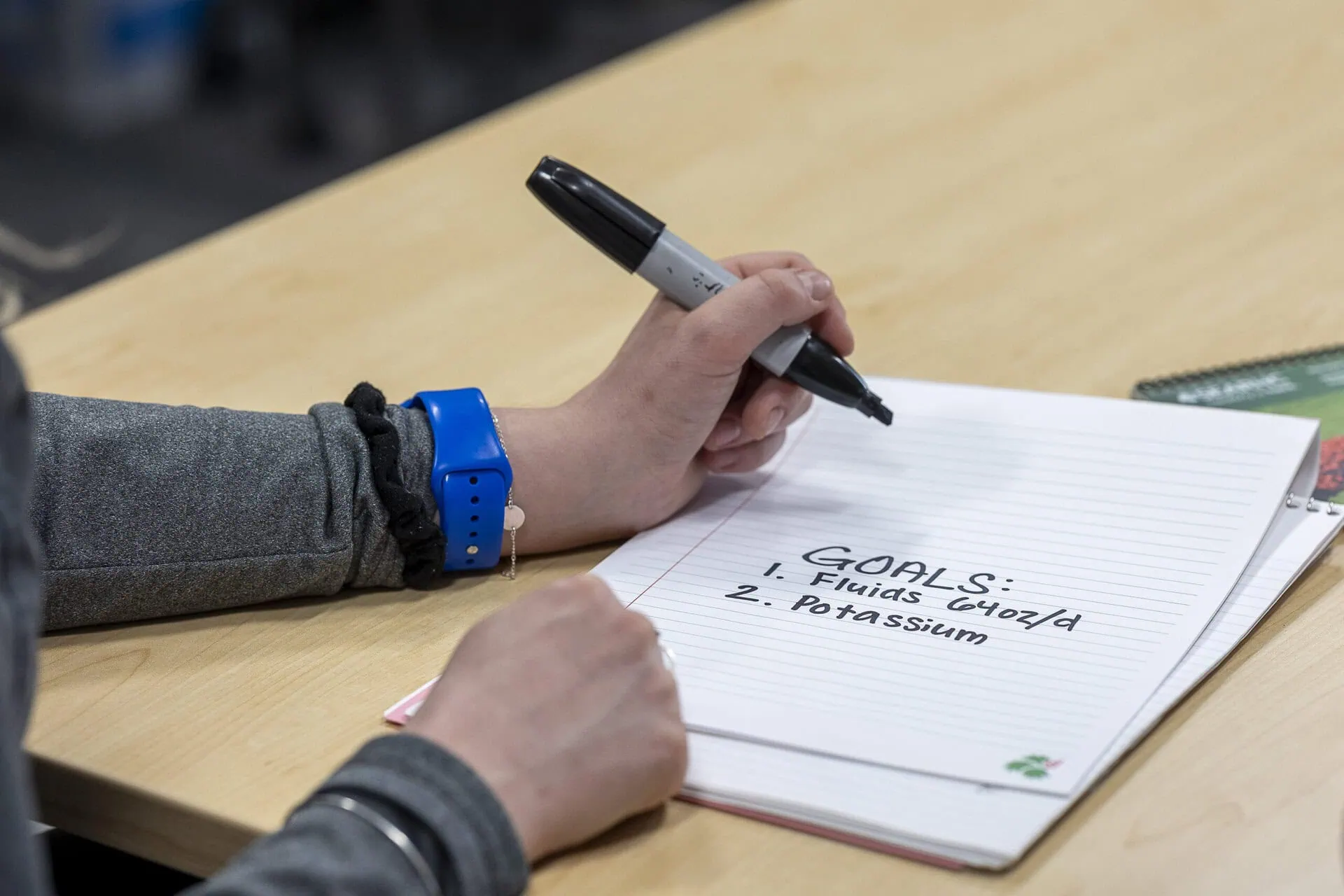On March 17, 2020, community members in Klukwan, Alaska, gathered at the Klukwan Alaska Native Sisterhood (ANS) Hall for a St. Patrick’s Day dinner sponsored by SEARHC Community Wellness.
Little did we know that it would be our last community gathering for several months. Church closed. The tribal offices closed, and the staff worked from home. The Klukwan SEARHC Clinic was closed. Having dinner guests was no longer happening at our homes. Our twice daily, one-mile community walks stopped. These were only a few of the obvious changes that we faced in Klukwan early on in the COVID pandemic.
Later on, we cancelled vacations, we had Zoom appointments with our providers, we began church services via Zoom. Our Burger Night was cooked by two people, masked and in the same “bubble” and set outside for pick up. In 2020, our Community Christmas gathering was modified to be an outdoor drive up. Community members drove and picked up hot beverages and baked treats from multiple front yards. Life as we knew it was making a comeback but it will never be the same. So what do we do now?
For me, a Lingít woman living in Klukwan, getting through and going through the pandemic went like this…
Walking: those one-mile walks were and still are a life saver. I can talk face-to-face with people. Sometimes it’s just laughs. Sometimes it’s about whatever struggle I am facing that day. They say walking also releases our feel-good endorphins. Well, I certainly have needed those endorphins as I navigate this post-COVID world.
Spirituality: There weren’t Sunday services, but I still spent time with God. There was a lot to talk with Him about. Family and friends who tested positive for COVID, family and friends fighting for their lives. Letting Him know I was scared. Knowing God remains here and I’m not going through this alone is big.
Culture: Early on, a small group of us grabbed a drum and sang a few Lingít songs outside the homes of a few elders. I still get tears when I think of how happy an elder was as he stood at his window listening.
I also took an online Lingít class. It helped take my mind off the stress of the day and hear and learn more Lingít language. I was able to take this class along with family and friends throughout Alaska, and even in Washington and California.
We had deaths during the pandemic, but not from COVID. We followed our Lingít protocols as much as we safely could. People stood outside as speeches and responses were given. That was a way we could honor the person who passed away and pay our respects to their family and friends. People went into the clan houses by households or bubbles if a ceremony was held indoors. The lunch that is served in Klukwan when a body is brought home was bagged and distributed after these gatherings. Forty-day parties were held outdoors or cooked at home then family/clan members would distribute to each home in the village. Keeping up those protocols was so important and essential to our healing journey both for the death and the pandemic.
Overall Health: I saw a physical therapist, providers and a dietitian during this time to keep myself in good health. I saw the behavioral health providers because this was all new to me and I needed some help navigating my new world.
As a Community Wellness Health Educator, I shared the information for the behavioral health services and resources. ANTHC 907.729.2492, SEARHC Helpline 1.866.244.8097, Careline Alaska 877.266.4357. I also let people know that these numbers may be associated with “Crisis” and “Suicide Prevention” but it’s the early call we make that can help us get connected to someone before a crisis happens.
My Job: I was one of the few people who could still go into work. Early on, I was able to partner with the church and the tribe. Our group called and checked-in on community members. We delivered food kits, including ingredients for a spaghetti dinner or a taco dinner. It was more about connecting with people and doing something to brighten their day than the meal itself. We picked up mail, medications and groceries for people and safely dropped them off. All this was done at a time when little was known about the spread of COVID.
I adjusted my work hours so I could go back to the clinic in the evening for some fun activities to help Klukwan through all this. We’d have a call-in game. I’d pick random numbers and people had 30 minutes to call in and if they were caller number 16 or whatever they got a prize. It was a fun way to connect with people. Another thing we did was honor our teachers. I’d ask the question: Who taught you the Lingít songs/dances? Who taught you about your clan? Who taught you how to fish?
I was able to partner with the church and tribe to put together information to help the community stay safe, and host events in a safe manner. I was even able help with the COVID testing for community members when that was a thing.
At shook is the Lingít word for laughter. Looking back, I see laughter played a big part in all of the outlets I mentioned. And I know it’s going to always be a part of my healing journey.
That’s a snapshot of my journey from March 2020 to May 2024. I share all that in hopes that whoever you are and however this pandemic affected you, you’ll know “It’s going to be ok.” That is something my dad used to say often. Those five words, containing only 14 letters have helped me face the biggest and baddest giants that have stood before me. And I share them with you to use as you face your own giants.
For the rest of our lives, we are going to be processing this. Each in our own way. Our job, our culture, our religion, modern medicine and behavioral health appointments. But as we are taught in the Lingít culture, it’s about balance. As you choose and use any of the above mentioned ideas or add your own, take care to remember to balance it out. And what worked last year may not work tomorrow.
I gu.aa yax xwan. Be strong and have courage.






